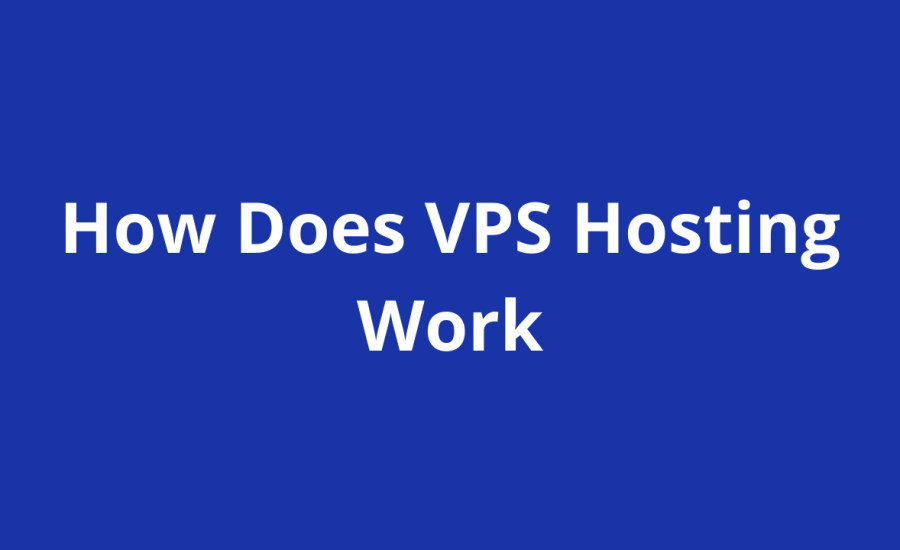(Virtual Private Server) VPS hosting is a popular choice for individuals and businesses looking for more control, flexibility, and power than what is provided by shared hosting. It is a perfect middle ground between shared hosting and dedicated server hosting, offering a balance of affordability and performance. In this blog, we will explore how VPS hosting works, its benefits, and how it compares to other hosting options.
Table of Contents
What is VPS Hosting?

VPS hosting stands for Virtual Private Server hosting. It involves partitioning a physical server into multiple virtual servers, each acting independently. This means that even though several VPSs share the same physical server, each VPS has its own dedicated resources like CPU, RAM, and storage, providing a similar experience to having a dedicated server.
The Mechanics Behind VPS Hosting
- Virtualization Technology: The core of free VPS hosting lies in virtualization technology. A hypervisor, which is specialized software, is used to create and manage multiple virtual machines (VMs) on a single physical server. Popular hypervisors include VMware, KVM, and Hyper-V.
- Partitioning the Server: The hypervisor divides the physical server’s resources into isolated environments. Each virtual machine operates as an independent server, complete with its own operating system, applications, and data. This separation ensures that one VPS does not affect the performance of another.
- Resource Allocation: Resources such as CPU, RAM, and disk space are allocated to each VPS. These resources are guaranteed, meaning that they are always available to the VPS, regardless of what other virtual servers on the same physical machine are doing.
- Operating System Choice: With VPS hosting, users have the freedom to choose their preferred operating system. Whether you prefer Windows, Linux, or another OS, you can install and run it on your VPS.
- Scalability: One of the key advantages of VPS hosting is scalability. As your website or application grows, you can easily upgrade your resources without affecting the performance of your VPS. This is done by allocating more CPU, RAM, or storage to your virtual server.
Advantages of VPS Hosting
- Cost-Effective: VPS hosting is more affordable than dedicated server hosting, making it an attractive option for small to medium-sized businesses.
- Enhanced Performance: Since resources are dedicated, VPS hosting offers better performance compared to shared hosting.
- Customization: Users have full control over their virtual environment, allowing for the installation of custom software and configurations.
- Security: The isolation provided by VPS hosting ensures that your data is secure and protected from other users on the same physical server.
- Reliability: VPS hosting offers higher reliability as the performance of your server is not impacted by other users’ activities.
VPS Hosting vs. Shared Hosting
Shared Hosting: In shared hosting, multiple websites share the same server and its resources. This can lead to performance issues if one website uses too many resources. It is generally the cheapest hosting option but comes with limitations in terms of control and performance.
VPS Hosting: This, on the other hand, offers a dedicated portion of the server’s resources. This means better performance, more control, and the ability to run custom applications and configurations.
VPS Hosting vs. Dedicated Hosting
Dedicated Hosting: With dedicated hosting, you have an entire physical server dedicated to your website or application. This offers the highest level of performance, control, and security but comes at a higher cost.
VPS Hosting: VPS provides many of the benefits of dedicated hosting but at a fraction of the cost. It is a more economical solution for those who need more control and performance than shared hosting but do not require the full resources of a dedicated server.
How to Choose the Right VPS Hosting Provider
When selecting a VPS hosting provider, consider the following factors:
- Performance: Look for providers that offer high-performance hardware and reliable uptime.
- Scalability: Ensure the provider allows easy upgrades as your needs grow.
- Support: Check if the provider offers 24/7 customer support and technical assistance.
- Security: Verify the security measures in place to protect your data.
- Cost: Compare pricing plans to find a provider that fits your budget while meeting your requirements.
Setting Up Your Hosting
Setting up a VPS is straightforward:
- Choose a Hosting Plan: Select an affordable hosting plan that suits your needs in terms of resources and budget.
- Select an Operating System: Choose the OS you want to run on your VPS.
- Configuration: Once your VPS is provisioned, you can configure it by installing the necessary software and applications.
- Deploy Your Website or Application: Upload your website files or deploy your application to the VPS.
- Monitor and Manage: Regularly monitor the performance and security of your VPS to ensure optimal operation.
Common Use Cases for VPS
- Web Hosting: Hosting websites with moderate to high traffic that require more resources than shared hosting can provide.
- E-commerce: Running online stores that need dedicated resources for better performance and security.
- Application Hosting: Hosting custom applications that require specific software configurations.
- Development and Testing: Providing a controlled environment for software development and testing.
FAQs
Q: What is VPS hosting? A: VPS involves partitioning a physical server into multiple virtual servers, each with dedicated resources, providing a similar experience to having a dedicated server.
Q: How does VPS work? A: VPS uses virtualization technology to create isolated environments on a single physical server, each operating as an independent server with its resources.
Q: What are the advantages of VPS ? A: VPS offers cost-effectiveness, enhanced performance, customization, security, and reliability compared to shared hosting.
Q: How does VPS compare to shared hosting? A: VPS provides dedicated resources and better performance, while shared hosting involves multiple websites sharing the same server resources, potentially leading to performance issues.
Q: Is VPS better than dedicated hosting? A: VPS is a more affordable alternative to dedicated hosting, offering many similar benefits, but dedicated hosting provides the highest level of performance, control, and security.
Q: How do I choose a VPS hosting provider? A: Consider factors such as performance, scalability, support, security, and cost when selecting a VPS hosting provider.
Q: What are common use cases for VPS? A: VPS is commonly used for web hosting, e-commerce, application hosting, and development/testing environments.
Bonus Content: Tips for Optimizing Your VPS
- Regular Updates: Keep your operating system and software up to date to ensure security and performance.
- Security Measures: Implement firewalls, regular backups, and security patches to protect your VPS.
- Resource Management: Monitor resource usage and optimize configurations to prevent overloading your VPS.
- Performance Tuning: Fine-tune server settings and optimize applications to improve performance.
- Backup Solutions: Regularly back up your data to prevent loss in case of any issues.
By understanding how VPS hosting works and its benefits, you can make an informed decision on whether it is the right choice for your hosting needs. Whether you are running a website, an online store, or a custom application, VPS hosting provides the performance, control, and security necessary for a successful online presence.
